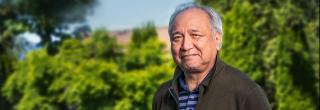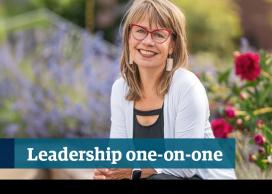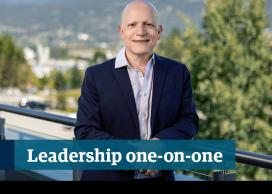The Honourable Steven Point (xwĕ lī qwĕl tĕl) became UBC’s 19th Chancellor on July 1, 2020. As Chancellor, he acts as the honorary head of the university and presides over all major ceremonies and convocations. He also represents the university in a wide range of events and activities and serves as a voting member of both UBC Senates and the Board of Governors.
Since graduating from UBC with a Bachelors of Law in 1985, Chancellor Point has maintained close ties with the university. Prior to serving as Director of the First Nations Legal Studies program at the Peter A. Allard School of Law, he spent many years practicing criminal law and Indigenous law. His distinguished career also includes working as an immigration adjudicator for Citizenship and Immigration Canada, serving as a provincial court judge in 1999, and being appointed the 28th Lieutenant Governor of British Columbia in 2007.
In 2013, Chancellor Point was awarded an honorary Doctor of Laws degree at UBC for his exceptional commitment in the field of law, legal and Aboriginal education and his leadership in the Indigenous community. As a member of the Skowkale First Nation, he has advocated for Indigenous people throughout his career, pressing for greater recognition of their contributions and their fuller involvement in all aspects of life in British Columbia.
Q1. What qualities do you most admire in a leader?
SP: I like leaders who can take complex ideas and reflect them back to people in digestible formats — something that’s recognizable. This is a level of awareness of thinking that I believe is crucial for good leaders.
Q2. What makes you laugh?
SP: What really makes me laugh is the unexpected — especially when we’re able to laugh at ourselves. I’m a fan of the old “pie in the face” type humour. Also, listening to kids makes me laugh when they ask questions and express themselves honestly. Gwen (my wife) and I have 13 grandchildren and five great grandkids, so we have lots of opportunities to laugh out loud.
Q3. Who inspires you and why?
SP: I was inspired by Clarence Darrow who was an American lawyer in the United States. He defended a teacher who wanted to teach Darwin’s theory of evolution. Back then, the teacher was called anti-Christian and was accused of blasphemy — but wanted to teach it because he felt it was science. Clarence Darrow won that case and reading a book about him was actually why I decided to go into law. I admire people who have stood up for what they believe in — even if it has cost them their lives.
Q4. For you, what makes UBC so special?
SP: My father is from Musqueam and he is a Point, so I have this personal feeling and connection towards the land where the university is situated. I also went to school at UBC. Every time I get back on campus, I can’t help but feel that closeness to the university, remembering all the good times I had there. When you go through life on campus, living and studying there, it becomes a personal enclave for your mind and your spirit. It’s part of who I am and how I got to where I am today.
Q5. What is the most important lesson you’ve learned in your career to date?
SP: I think the number one lesson among many that I’ve garnered over time is to believe. For a long time, I struggled with believing in myself as a Native person. And because of colonialism, I think that Indigenous people have struggled with this kind of inferiority complex. Getting over that is a challenge — it’s a struggle for me. Still today I get surprised by people in meetings who say “I like what you said.”
Q6. How do you like to recharge?
SP: I like to get up in the morning around 3am — there’s very little energy movement at that time and the silence is very relaxing. It’s a time when I can rejuvenate. I also like to play my guitar, write music, make up songs, carve, draw, paint with my grandkids and rebuild instruments. I rebuilt a violin a couple of years ago and enjoyed that, as I like fixing things.
Q7. Who are your favourite writers?
SP: I like James A. Michener and enjoy reading lengthy books by historical novelists. I have a collection of books by Tuesday Lobsang Rampa, a former Tibetan monk and Carlos Castaneda, an anthropologist who began writing down his experiences with shamanism. I also have two or three bookshelves on Indigenous law and Indigenous people and enjoy reading about self-healing and psychology. Right now, I’m reading a book about addictions — it’s fascinating and very interesting.
Q8. What is the best advice you were ever given?
SP: Evan Adams’ father told him that before he left home, he should get over himself. I loved that because it hit me right in the face — it was really good advice that stuck with me for a long time. You see, ideas about what’s important often include being self-important. When we’re self-important we get offended when someone says something that might hurt our feelings. And when you get over yourself, you’re relieved of all of those things, and it’s liberating.
Q9. What do you value in your colleagues?
SP: One colleague comes to mind — she was happy and energetically positive. She wasn’t weighed down by self-doubt and it was energizing to be around her. As humans, we intuitively share energy. And when you’re sharing positive energy, you’re lifting each other up in positive ways — it’s a good thing to do.
Q10. If you could have a super power, what would it be?
SP: I’d love to fly. I like being airborne so that would be fun to do. I’d like to get up and see the world from a different perspective.
Q11. As UBC’s first Indigenous Chancellor, what advice would you give to aspiring Indigenous leaders?
SP: One thing about Indigenous people is that we are egalitarian — we have this pressure to be the same. So, when someone aspires to leadership, the rest of us tend to pull them back down. It’s something that you need to be aware of as you consider the values that we have around leadership as Indigenous people.
Q12. What do you hope to move forward at UBC during your time as Chancellor?
SP: If you take all of the ideas that emerge and are discussed at the university, you could call it a bit of a stew, I think that the element that we’re now looking at is the possibility of adding the Indigenous perspective. The Indigenous perspective is quite different. There’s commonality of course, but I think that Indigenous ways of knowing and Indigenous ideas, particularly around democracy, medicine, and justice, can help shape and change our world — maybe for the better. I hope that in some of that process, when we add an Indigenous Chancellor to the mix, that stew at the university might end up tasting a little different.
Watch the virtual installation ceremony for UBC’s 19th Chancellor, the Honourable Steven Point (xwĕ lī qwĕl tĕl). The ceremony took place on Wednesday November 25, 2020.
Published: November 16, 2020
Interviewed by: Philip Keen, UBC Internal Communications



